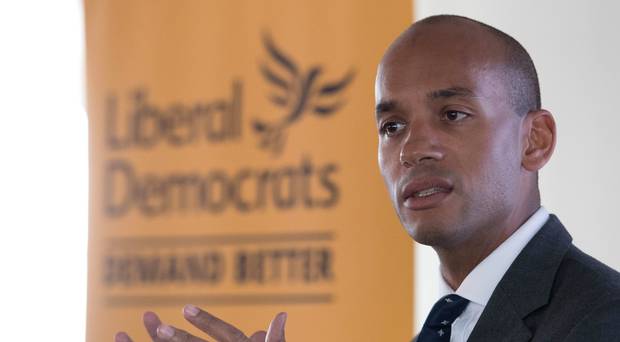| Govt forced to publish data showing less than 3 in 10 UK exporters are prepared for ‘no deal’ BrexitNew data obtained by the Liberal Democrats from HM Treasury shows less than 3 in 10 exporters to the EU are ready for a ‘no deal’ Brexit. Figures suggest most will not be ready until the beginning of 2021. In a no-deal Brexit, businesses that currently only trade with EU countries will need to apply for an Economic Operator Registration and Identification (EORI) number to trade goods into and out of the UK. HMRC uses this number to identify the business and collect duty on their goods.Various business lobbying organisations have been warning for months of a serious lack of preparedness amongst firms for a ‘no deal’ Brexit and how few British exporters to the EU have an EORI number enabling them to continue to trade after a ‘no deal’ Brexit.Chuka Umunna MP, the Liberal Democrats’ Treasury & Business spokesperson asked HM Treasury (HMT) for the latest figures on how many businesses that will need an EORI number to export to the EU have one, in a parliamentary question on 18th July. However he was told by the Financial Secretary Jesse Norman MP in an answer shortly before the summer Recess on 23rd July that “data on the number of traders that would need a UK EORI number is not readily available.” This was in spite of the fact that Government has already privately shared the most recent data with various business groups. HMT also publicly released such data at the start the year but that was before leaving the EU ‘do or die’ on 31 October 2019 became government policy.Mr Umunna threatened to raise a Point of Order, complaining to the House of Commons Speaker about the unwarranted withholding of such data from Parliament, and also said he would submit a Freedom of Information Request to force disclosure of the latest data. As a result, HMT have now provided the latest EORI numbers data to Mr Umunna which suggests less than 3 in 10 exporters that will need an EORI number to trade in a ‘no deal’ scenario have one. If exporters to the EU register for an EORI number at the current rate (up to 10,000 per month), all businesses exporting to the EU won’t be registered until the beginning of 2021 at the earliest.The data reveals:* Since December 2018, approximately 66,000 traders who currently trade just with the EU have been issued with a UK EORI number. * However, based on 2018 data, HMRC estimate that there are approximately 150,000 VAT registered traders who currently trade with the EU and may therefore need to obtain a UK EORI number.* Figures released by HMRC in February 2019 revealed there were a further 95,000 non VAT registered businesses that trade with the EU and need to take action too. * According to HMRC the volume of businesses that have registered for UK EORI numbers to date is equivalent to around two thirds of the total value of trade undertaken with the EU, by VAT registered companies. \ Commenting on the forced release of the latest EORI data, Chuka Umunna, the Liberal Democrat Treasury & Business spokesperson, said:“These figures reveal that an overwhelming majority of UK exporters to the EU are unprepared for a ‘no deal’ Brexit and will not be in a position to deal with the mountain of red tape and bureaucracy it will burden them with on 31 October. “Pursuing a ‘no deal’ Brexit is wholly irresponsible political choice of the new administration for which there is no mandate and which will put businesses and jobs at risk.“Any form of Brexit will harm the economy and put obstacles in front of UK firms which is why Liberal Democrats not only want a final say for the people on any deal but are also the only party that can get into Government which is committed to stopping Brexit altogether.” |









